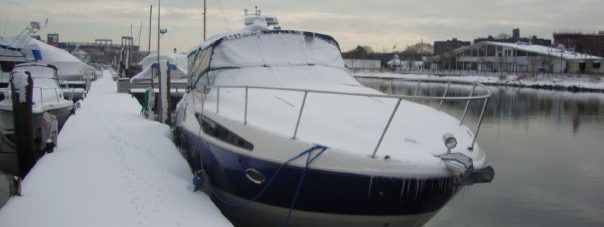Boat training: Safety Tips For Winter Boating

Safety Tips For Winter BoatingIt takes passionate-diehard boaters to be out on the water during the winter months. If you’re one of them, you need to take extra precautions for Boat training as the Temperatures both air and water has plummeted.
Think about some of the tips to help keep you safer and alive while you’re out there.
During the boating season you might file a float plan when you take long trips, But due to the fact that it is so much more dangerous during the winter months, you should let family members and friends know where you’re going and when you expect to be back. Remember that there are fewer boaters out there to rescue you and the seas are definitely rougher, the greatest numbers of deaths on the water in the winter are due to boats getting swamped and hyperthermia. If you have any problems on the water, every minute counts in the cold weather.
A Russian from Siberia once told me, “It’s not bad weather … It’s bad clothes”. Dress for the Cold Temps, Lots of layers, preferably polyester rather than cotton. Cotton stays wet and loses its ability to insulate. Polyester pulls the water away from your skin as well. Wear a lot of layers or warmer clothes worn for protection against the cold but remember if you fall in in water without a PFD, they can become heavy, making it very hard to stay afloat.
Wearing a float-coat has the comfort of a nylon jacket and the warming qualities of wetsuit and keeps your head above water! Make sure the Float Coat is US Coast Guard Approved Type III. Personal Flotation Device. It can dramatically increase your chances of survival if you wind up falling in the water; they add insulation and warmth without being too bulky.
Don’t just take a life jacket — wear it. Did you know that it is a NYS Boating and PWC safety law; that EVERY person on board a vessel under 21 ft must wear a life jacket if they are out between November 1st and May 1st. Falls overboard do happen, and more than 50% of all boating fatalities due to drowning occur because of the effects of being immersed in cold water.
If you do Fall in … Remember these few tips, get out quickly, your body will lose its temperature much faster in the water than if you get on top of a capsized boat . If you can’t get out, conserve your body heat by holding your knees to your chest and clasping your arms around your legs. This will keep your core temperature from escaping. Your clothes will provide some insulation so keep them on and cover your head. Try not to flail your arms, or swim as this will spend your energy and cause you to lose your body heat faster.
Have “Backups to the Backups”. You will be happy that you brought back-up warmth if the worst happens. Pack a change of warm clothes, extra towels or warm blankets, hot beverage in a thermos, or pocket warmers. It could be the difference between a surviving or tragic story.
At NYBoatSchool.com we teach in the NYS Boating and PWC (JetSki) Safety Course, aka Boating License, Even experienced captains and boaters who take the class learn from others.
